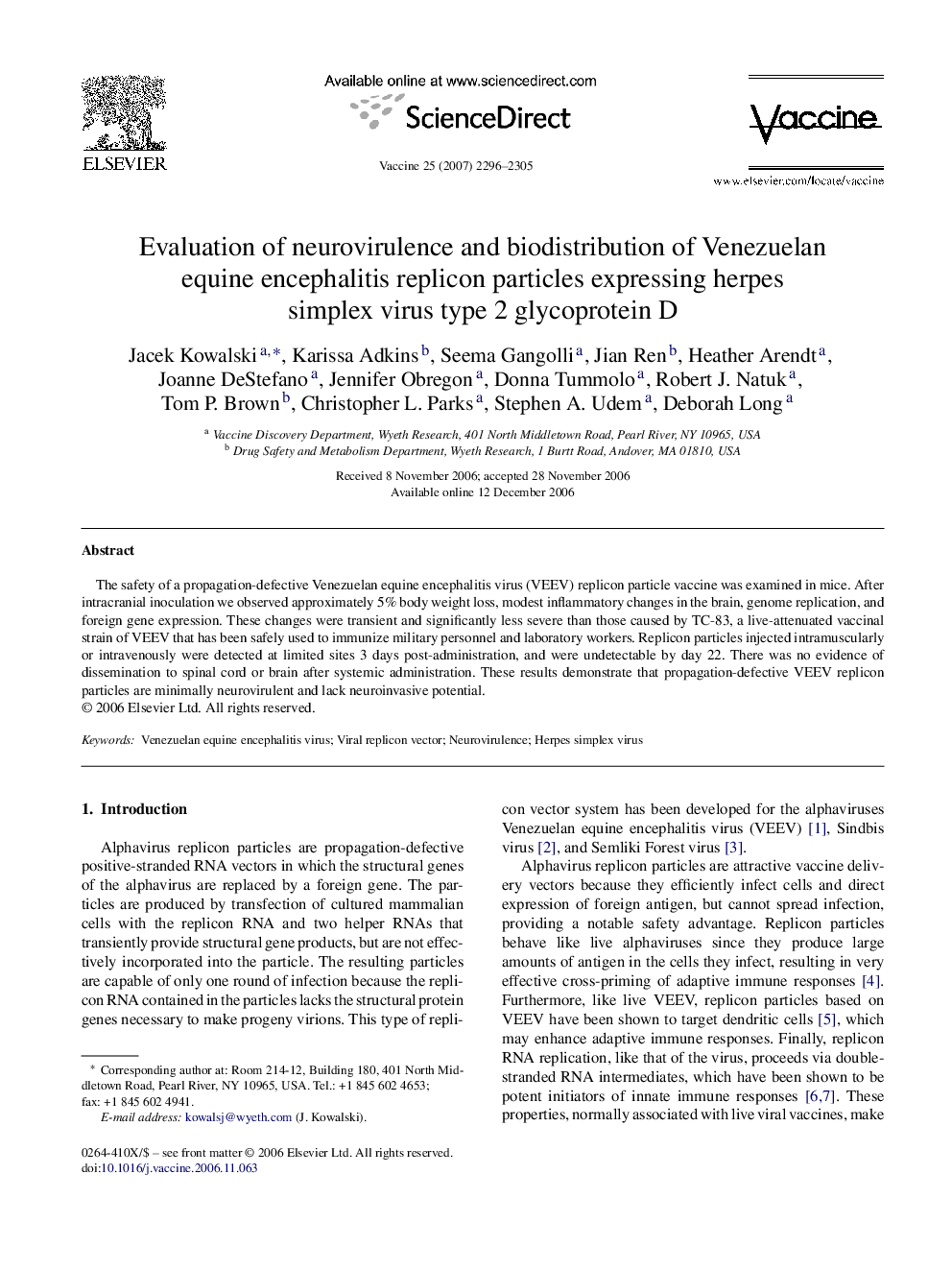| Article ID | Journal | Published Year | Pages | File Type |
|---|---|---|---|---|
| 2408475 | Vaccine | 2007 | 10 Pages |
The safety of a propagation-defective Venezuelan equine encephalitis virus (VEEV) replicon particle vaccine was examined in mice. After intracranial inoculation we observed approximately 5% body weight loss, modest inflammatory changes in the brain, genome replication, and foreign gene expression. These changes were transient and significantly less severe than those caused by TC-83, a live-attenuated vaccinal strain of VEEV that has been safely used to immunize military personnel and laboratory workers. Replicon particles injected intramuscularly or intravenously were detected at limited sites 3 days post-administration, and were undetectable by day 22. There was no evidence of dissemination to spinal cord or brain after systemic administration. These results demonstrate that propagation-defective VEEV replicon particles are minimally neurovirulent and lack neuroinvasive potential.
